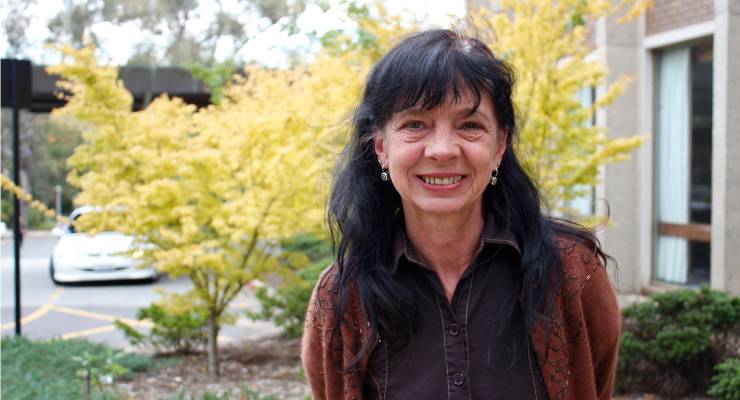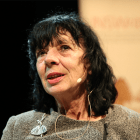
I remember 1967, and being taken as a five-year-old by my grandmother and aunties to the polling booth at a little country school called Nangus Primary on the road to Gundagai. Nangus is a big floodplain where the Murrumbidgee widens out before it narrows, quickens and swings upstream.
My grandmother was born on this floodplain and so was her grandmother, as well as my aunties and mother. I grew up on the floodplain too. Yet on this day, everyone at the polling booth — from the fifth-generation farmer to the teacher who had just moved there at the start of the year — had an opinion of us, and of Aboriginal people.
I was a child who didn’t get out much, and my five-year-old brain was burning and swelling, not just with the views I heard but with the volume and confidence with which they were delivered. I asked my grandmother about it. She said everyone likes to gossip about Blakfellas — without us, she laughed, no one would have anything to talk about. But you don’t have to act like they think we do, she said.
That era in 1967 feels a bit like 2023. As we approach another referendum, one that ultimately will solely impact Blakfellas, the armchair experts are working overtime. But this is not a discussion for or against the Voice to Parliament — it’s about 4% of the population bearing 96% of the country’s opinions and questions, and about us having to listen to a national story that we didn’t write.
It’s a story familiar to us all. Whether regarding the invasion of 1788, still unacknowledged in either political forums or public addresses, when the word itself is skirted around and of late referenced simply as “the arrival”. Or in educational settings, where teaching students a Black-armband view of history and culture is “biased”, or when “unbalanced views” really mean presenting students with the alternative views of Aboriginal historians and storytellers. Or in social or workplace contexts, where colleagues and associates, who say they are allies, get offended when you use “strong emotive terms” like invasion and settler privilege.
The national settler narrative flows as a story, one where settler leaders, speakers and writers seek to continue to control the representations of us in post-invasion national discourse, educational transmission and national settler literature. Controlling how other cultures are represented in the national narrative is a powerful tool of control that leaves a lasting intergenerational legacy.
Bangerang/Wiradjuri Elder Aunty Geraldine Atkinson recently wrote an article in Crikey titled “‘Children don’t belong in prison’: We shouldn’t wait four years to raise the age of criminal responsibility to 14”. It was a swift response to the Andrews government’s proposal to lift the age of criminal responsibility in Victoria from 12 to 14 by 2027.
Aunty Geraldine wrote:
But I do not understand why we have to wait four more years to make this simple change. We’ve been talking about it for a long time.
In reading Aunty Geraldine’s article, I was struck, for what feels like the thousandth time, by how much we First Nations peoples are talked about but not listened to. How we are still being cast in someone else’s story, typically not one to our liking and one where we don’t control the plot and didn’t choose to be characters.
Rarely a day goes by that I don’t hear someone on a tram saying they can’t understand why Aboriginal people can’t “get ahead” when we have the same privileges as everyone else. Or a student inquiring why we’re sceptical about institutions when “the violence happened to the previous generation”. Or a visiting academic wanting to know, having just read about Australia’s high rates of Indigenous incarceration, why we don’t just teach our children not to steal.
Yet despite the volume and frequency of these unsolicited opinions — which are part of my and every other Blakfella’s life I know — it never gets any easier.
Talking about Aboriginal people is a national pastime, but very few settlers consider how it feels to be constantly placed in someone else’s story. The irony is staggering. The same people offended at the terms invasion or white fragility never consider themselves rude or insensitive when they express an outsider opinion, or when they single out the only Aboriginal person on the staff or in the classroom and ask them, in front of everyone, what they thought about the latest news story about Aboriginal people.
How do we wake up in this story every day? How do you hold true to yourself, your people, and your culture amid settler gossip that seeks to define you?
Defining is central to this narrative. While Aboriginal writers, historians, academics, teachers and social commenters are intervening in and interrupting the national settler mythscape in some educational and social settings, we are still being defined at a national level by governments.
These definitions leave a lasting legacy for our children. While none of us are naïve enough to think that having a national Indigenous Voice to Parliament will “fix” the past, it is a chance to define ourselves for the future.








This is skillful adocacy from Jeanine Leane because it takes the reader out of their framework and into another people’s shoes.
It leaves me wanting to hear more from her.
I know why some people ‘can’t understand why Aboriginal people can’t “get ahead” when we have the same privileges as everyone else’. It’s a lack of practice of empathy, whether wittingly or unwittingly. Jeanine Leane avoids the usual pitfalls of hectoring and assuming bad faith simply by taking them to the other’s point of view.
What I’d like to hear more of from Jeanine Leane is what she thinks might work. Or maybe first I need to hear more about why it’s difficult for aboriginal people to get ahead. Maybe I can’t understand the difficulty well enough to know what to do because the problem is so unfamiliar to me personally.
I see and acknowledge the problem, and I’d like to hear more about what it feels like to those who live it, so I can better understand why all the attempts to date have failed to make enough difference, and think anew about what might.
US and Canadian first nations have suffered similar racial trauma. Their numbers are greater than ours, and it continued for longer, but the end result has been the same, it appears. The May issue of National Geographic has an article with nine people relating their experiences, and is very revealing. The Australian book, “The Wailing” by Stuart Rintoul tells it well, but is harrowing.
The difficulty of understanding “Why” is less important than knowing what is. The why will follow in its own good time. Remembering that blaming the victims is what perpetuates the evil, as always, is also key. IMHO
And taking the children away is only one aspect.
‘…talked about, but not listened to.’ Good line.
well said
Jeanine Leanne is worth listening to. She is a good communicator.